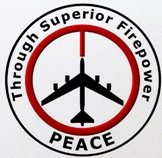When I addressed you just over a year ago, nearly 12 million Iraqis had cast their ballots for a unified and democratic nation. The elections of 2005 were a stunning achievement. We thought that these elections would bring the Iraqis together – and that as we trained Iraqi security forces, we could accomplish our mission with fewer American troops.
But in 2006, the opposite happened. The violence in Iraq – particularly in Baghdad – overwhelmed the political gains the Iraqis had made. Al Qaeda terrorists and Sunni insurgents recognized the mortal danger that Iraq’s elections posed for their cause. And they responded with outrageous acts of murder aimed at innocent Iraqis. They blew up one of the holiest shrines in Shia Islam – the Golden Mosque of Samarra – in a calculated effort to provoke Iraq’s Shia population to retaliate. Their strategy worked. Radical Shia elements, some supported by Iran, formed death squads. And the result was a vicious cycle of sectarian violence that continues today.
The situation in Iraq is unacceptable to the American people – and it is unacceptable to me. Our troops in Iraq have fought bravely. They have done everything we have asked them to do. Where mistakes have been made, the responsibility rests with me.
So, he is essentially saying "The Buck Stops Here". That is something that usually earns respect from normal people (the crazy moonbats are unreachable anyway). Then he outlines the new strategy that makes sense:
The most urgent priority for success in Iraq is security, especially in Baghdad. Eighty percent of Iraq’s sectarian violence occurs within 30 miles of the capital. This violence is splitting Baghdad into sectarian enclaves, and shaking the confidence of all Iraqis. Only the Iraqis can end the sectarian violence and secure their people. And their government has put forward an aggressive plan to do it.
Our past efforts to secure Baghdad failed for two principal reasons: There were not enough Iraqi and American troops to secure neighborhoods that had been cleared of terrorists and insurgents. And there were too many restrictions on the troops we did have. Our military commanders reviewed the new Iraqi plan to ensure that it addressed these mistakes. They report that it does. They also report that this plan can work.
Let me explain the main elements of this effort: The Iraqi government will appoint a military commander and two deputy commanders for their capital. The Iraqi government will deploy Iraqi Army and National Police brigades across Baghdad’s nine districts. When these forces are fully deployed, there will be 18 Iraqi Army and National Police brigades committed to this effort – along with local police. These Iraqi forces will operate from local police stations – conducting patrols, setting up checkpoints, and going door-to-door to gain the trust of Baghdad residents.
This is a strong commitment. But for it to succeed, our commanders say the Iraqis will need our help. So America will change our strategy to help the Iraqis carry out their campaign to put down sectarian violence – and bring security to the people of Baghdad. This will require increasing American force levels. So I have committed more than 20,000 additional American troops to Iraq. The vast majority of them – five brigades – will be deployed to Baghdad. These troops will work alongside Iraqi units and be embedded in their formations. Our troops will have a well-defined mission: to help Iraqis clear and secure neighborhoods, to help them protect the local population, and to help ensure that the Iraqi forces left behind are capable of providing the security that Baghdad needs.
Many listening tonight will ask why this effort will succeed when previous operations to secure Baghdad did not. Here are the differences: In earlier operations, Iraqi and American forces cleared many neighborhoods of terrorists and insurgents – but when our forces moved on to other targets, the killers returned. This time, we will have the force levels we need to hold the areas that have been cleared. In earlier operations, political and sectarian interference prevented Iraqi and American forces from going into neighborhoods that are home to those fueling the sectarian violence. This time, Iraqi and American forces will have a green light to enter these neighborhoods – and Prime Minister Maliki has pledged that political or sectarian interference will not be tolerated.
I have made it clear to the Prime Minister and Iraq’s other leaders that America’s commitment is not open-ended. If the Iraqi government does not follow through on its promises, it will lose the support of the American people – and it will lose the support of the Iraqi people. Now is the time to act. The Prime Minister understands this. Here is what he told his people just last week: “The Baghdad security plan will not provide a safe haven for any outlaws, regardless of [their] sectarian or political affiliation.”
Looks like Al-Sadr will soon be joining Saddam. It is about damn time. Bush also lays out the strategy. This strategy in large part depends on the steadfastness of the American people, along with the Iraqis fighting for their future. So, let's compare:
We, the aggrieved and belligerent Powers who are waging war against Germany, have no need to ask for respite. Every week our commerce grows; every month our organization is improved and reinforced. We feel ourselves more confident day by day of our ability to police the seas and oceans and to keep open and active the salt-water highways by which we have; and along which we shall draw the means of victory. It seems pretty certain that half the U-boats with which Germany began the war have been sunk, and that their new building has fallen far behind what we expected. Our faithful Asdic detector smells them out in the depths of the sea and, with the potent aid of the Royal Air Force, I do not doubt that we shall break their strength and break their purpose.
So, what is this war about? Here is President's answer:
The challenge playing out across the broader Middle East is more than a military conflict. It is the decisive ideological struggle of our time. On one side are those who believe in freedom and moderation. On the other side are extremists who kill the innocent, and have declared their intention to destroy our way of life. In the long run, the most realistic way to protect the American people is to provide a hopeful alternative to the hateful ideology of the enemy – by advancing liberty across a troubled region. It is in the interests of the United States to stand with the brave men and women who are risking their lives to claim their freedom – and help them as they work to raise up just and hopeful societies across the Middle East.
Again, a comparison:
This is not a question of fighting for Danzig or fighting for Poland. We are fighting to save the whole world from the pestilence of Nazi tyranny and in defense of all that is most sacred to man. This is no war of domination or imperial aggrandizement or material gain; no war to shut any country out of its sunlight and means of progress. It is a war, viewed in its inherent quality, to establish, on impregnable rocks, the rights of the individual, and it is a war to establish and revive the stature of man. Perhaps it might seem a paradox that a war undertaken in the name of liberty and right should require, as a necessary part of its processes, the surrender for the time being of so many of the dearly valued liberties and rights. In these last few days the House of Commons has been voting dozens of Bills which hand over to the executive our most dearly valued traditional liberties. We are sure that these liberties will be in hands which will not abuse them, which will use them for no class or party interests, which will cherish and guard them, and we look forward to the day, surely and confidently we look forward to the day, when our liberties and rights will be restored to us, and when we shall be able to share them with the peoples to whom such blessings are unknown.
The President is very grateful to our military and insists that their sacrifice should not be in vain:
In these dangerous times, the United States is blessed to have extraordinary and selfless men and women willing to step forward and defend us. These young Americans understand that our cause in Iraq is noble and necessary – and that the advance of freedom is the calling of our time. They serve far from their families, who make the quiet sacrifices of lonely holidays and empty chairs at the dinner table. They have watched their comrades give their lives to ensure our liberty. We mourn the loss of every fallen American – and we owe it to them to build a future worthy of their sacrifice.
And again:
The gratitude of every home in our Island, in our Empire, and indeed throughout the world, except in the abodes of the guilty, goes out to the British airmen who, undaunted by odds, unwearied in their constant challenge and mortal danger, are turning the tide of the world war by their prowess and by their devotion. Never in the field of human conflict was so much owed by so many to so few (italics mine).
What are the consequences of failure? Here is Bush's answer:
The consequences of failure are clear: Radical Islamic extremists would grow in strength and gain new recruits. They would be in a better position to topple moderate governments, create chaos in the region, and use oil revenues to fund their ambitions. Iran would be emboldened in its pursuit of nuclear weapons. Our enemies would have a safe haven from which to plan and launch attacks on the American people. On September the 11th, 2001, we saw what a refuge for extremists on the other side of the world could bring to the streets of our own cities. For the safety of our people, America must succeed in Iraq.
And here is what's required from all of us:
Fellow citizens: The year ahead will demand more patience, sacrifice, and resolve. It can be tempting to think that America can put aside the burdens of freedom. Yet times of testing reveal the character of a Nation. And throughout our history, Americans have always defied the pessimists and seen our faith in freedom redeemed. Now America is engaged in a new struggle that will set the course for a new century. We can and we will prevail.
We go forward with trust that the Author of Liberty will guide us through these trying hours.
Again, let's compare:
...I would say to the House, as I said to those who have joined this government: "I have nothing to offer but blood, toil, tears and sweat."
We have before us an ordeal of the most grievous kind. We have before us many, many long months of struggle and of suffering. You ask, what is our policy? I can say: It is to wage war, by sea, land and air, with all our might and with all the strength that God can give us; to wage war against a monstrous tyranny, never surpassed in the dark, lamentable catalogue of human crime. That is our policy. You ask, what is our aim? I can answer in one word: It is victory, victory at all costs, victory in spite of all terror, victory, however long and hard the road may be; for without victory, there is no survival. Let that be realised; no survival for the British Empire, no survival for all that the British Empire has stood for, no survival for the urge and impulse of the ages, that mankind will move forward towards its goal. But I take up my task with buoyancy and hope. I feel sure that our cause will not be suffered to fail among men. At this time I feel entitled to claim the aid of all, and I say, "come then, let us go forward together with our united strength."
There is not much left to add, but I'll add one more quote, just to make a point:
We shall go on to the end, we shall fight in France, we shall fight on the seas and oceans, we shall fight with growing confidence and growing strength in the air, we shall defend our Island, whatever the cost may be, we shall fight on the beaches, we shall fight on the landing grounds, we shall fight in the fields and in the streets, we shall fight in the hills; we shall never surrender...
The reason I keep comparing this particular Bush's speech to Winston Churchill speeches is because it can be compared. This is one of his best speeches. I wish he would give a speech like this at least once a month. One of my big problem with President Bush and his administration is that public relations efforts are non-existent. They just decided that they will do their thing, and the public will support it. But the current war is in large part a public relations war. You lose public relations, and you lose the war. I hope they learned their lesson. I also hope that the next President, whoever that will be (I have my preferences, and it's not a Democrat), will have learned this lesson as well. Finally, I hope that "we shall never surrender" spirit exists in our country today.

















1 comment:
Bush did give a good speech. It wasn't delivered well, and there were a few too many platitudes, but he hit the right points.
At this late time in the Presidency and the Iraq War, however, a good speech just won't cut it. In order for Bush to salvage anything from his Administration, and from the Iraq War, there must a resounding success, and soon.
He laid out the right strategy, but will the people and allies follow?
That is the big question.
Post a Comment